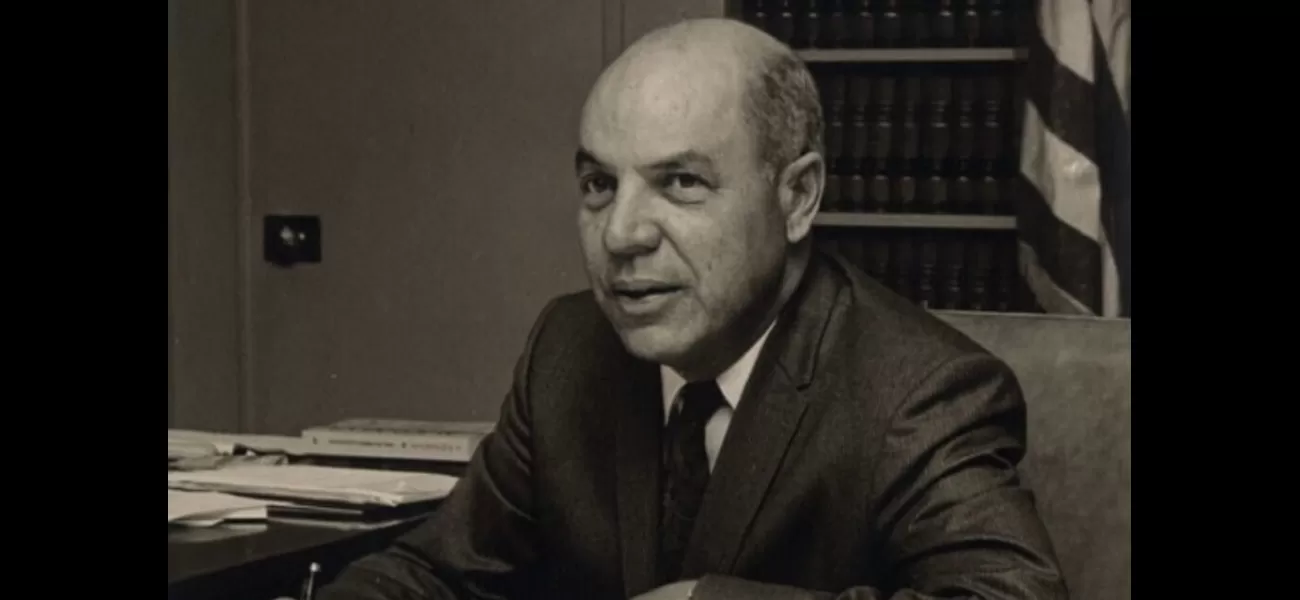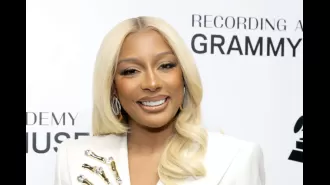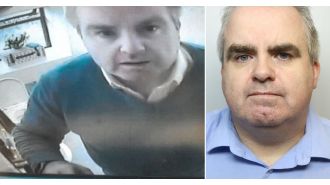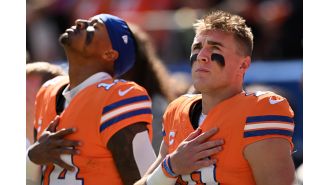Roanoke, VA will pay tribute to Edward R. Dudley, a prominent figure in civil rights and diplomacy, with a special commemoration.
Dudley assisted Thurgood Marshall at the Legal Defense and Education Fund, tackling cases for Black student admission, equal pay for teachers, desegregation of public transit, and voting rights.
April 26th 2024.

Edward R. Dudley may not be a household name, but his contributions to civil rights and diplomacy are nothing short of remarkable. In 1949, he shattered barriers by becoming the first Black ambassador for the United States, appointed to serve in Liberia. And now, his hometown of Roanoke, Virginia is honoring him with a historical marker near his childhood home.
Many may not realize the extent of Dudley's impressive resume, as his role in civil rights has often been overlooked. Before the landmark Brown v. Board of Education decision, he worked closely with Thurgood Marshall at the Legal Defense and Education Fund, fighting for the admission of Black students to universities in the South, equal pay for Black teachers, the end of segregated public transportation, and voting rights for Black people.
In 1945, thanks to the advocacy of New York's Mayor Fiorello H. LaGuardia, Dudley became the legal advisor to the governor of the U.S. Virgin Islands. And just three years later, he was appointed by President Harry S. Truman as the envoy to Liberia, paving the way for the establishment of an embassy there. This groundbreaking achievement made Dudley the first Black person to serve as an ambassador for the United States.
But Dudley's trailblazing journey was not without its challenges. He courageously spoke out against the injustices within the State Department, shedding light on their culture of "pale, male, and Yale" that likely hindered his chances for further advancement. However, his actions opened doors for future generations to come.
Ruth Davis, the first Black woman to be named a career ambassador and former director general of the U.S. Foreign Service, paid tribute to Dudley's groundbreaking efforts in a documentary about his life, African-American Trailblazers in Diplomacy. "If you don't have African-Americans, Asian-Americans, Hispanic Americans, you name it - if you don't have these people, you don't have a Foreign Service that is reflective of the population," she said. "So it is very important to have that diversity, so that we will have the diversity of thought as well as diversity of appearance."
Dudley's son, Edward Dudley Jr., is also proud of his father's accomplishments. He shared with Cardinal News, "That's one of the things I'm most proud of. It was a situation where Black people were often sent to hardship posts in Black countries. But my father's actions, despite the potential risks, helped change that. And even though he wasn't considered for further promotions, he paved the way for others to follow."
After his term as ambassador, Dudley returned to working for the NAACP and was eventually appointed as a judge on the Family Court in Manhattan. He continued to break barriers, becoming the first Black judge elected to New York's state Supreme Court in 1964. He served in this role until his retirement in 1985.
Despite his many accomplishments, it wasn't until Nelson Harris, a former Mayor of Roanoke and avid historian, began writing a book about the 1940s in the Roanoke Valley that Dudley's name began to receive the recognition it deserves. And now, Harris and the Roanoke NAACP are working together to raise funds for a historical marker in Dudley's honor. The marker will be created by a foundry in Ohio, with a cost of $3,410.
Dudley Jr. hopes that the people of Roanoke and the state of Virginia will take pride in their hometown hero. He stated, "He was a civil rights leader and a special guy in that when he was in a position of power, he wanted to bring in more Black people. I want people to know what an exceptional person he was and to be proud that he was from Virginia."
Many may not realize the extent of Dudley's impressive resume, as his role in civil rights has often been overlooked. Before the landmark Brown v. Board of Education decision, he worked closely with Thurgood Marshall at the Legal Defense and Education Fund, fighting for the admission of Black students to universities in the South, equal pay for Black teachers, the end of segregated public transportation, and voting rights for Black people.
In 1945, thanks to the advocacy of New York's Mayor Fiorello H. LaGuardia, Dudley became the legal advisor to the governor of the U.S. Virgin Islands. And just three years later, he was appointed by President Harry S. Truman as the envoy to Liberia, paving the way for the establishment of an embassy there. This groundbreaking achievement made Dudley the first Black person to serve as an ambassador for the United States.
But Dudley's trailblazing journey was not without its challenges. He courageously spoke out against the injustices within the State Department, shedding light on their culture of "pale, male, and Yale" that likely hindered his chances for further advancement. However, his actions opened doors for future generations to come.
Ruth Davis, the first Black woman to be named a career ambassador and former director general of the U.S. Foreign Service, paid tribute to Dudley's groundbreaking efforts in a documentary about his life, African-American Trailblazers in Diplomacy. "If you don't have African-Americans, Asian-Americans, Hispanic Americans, you name it - if you don't have these people, you don't have a Foreign Service that is reflective of the population," she said. "So it is very important to have that diversity, so that we will have the diversity of thought as well as diversity of appearance."
Dudley's son, Edward Dudley Jr., is also proud of his father's accomplishments. He shared with Cardinal News, "That's one of the things I'm most proud of. It was a situation where Black people were often sent to hardship posts in Black countries. But my father's actions, despite the potential risks, helped change that. And even though he wasn't considered for further promotions, he paved the way for others to follow."
After his term as ambassador, Dudley returned to working for the NAACP and was eventually appointed as a judge on the Family Court in Manhattan. He continued to break barriers, becoming the first Black judge elected to New York's state Supreme Court in 1964. He served in this role until his retirement in 1985.
Despite his many accomplishments, it wasn't until Nelson Harris, a former Mayor of Roanoke and avid historian, began writing a book about the 1940s in the Roanoke Valley that Dudley's name began to receive the recognition it deserves. And now, Harris and the Roanoke NAACP are working together to raise funds for a historical marker in Dudley's honor. The marker will be created by a foundry in Ohio, with a cost of $3,410.
Dudley Jr. hopes that the people of Roanoke and the state of Virginia will take pride in their hometown hero. He stated, "He was a civil rights leader and a special guy in that when he was in a position of power, he wanted to bring in more Black people. I want people to know what an exceptional person he was and to be proud that he was from Virginia."
[This article has been trending online recently and has been generated with AI. Your feed is customized.]
[Generative AI is experimental.]
0
0
Submit Comment





